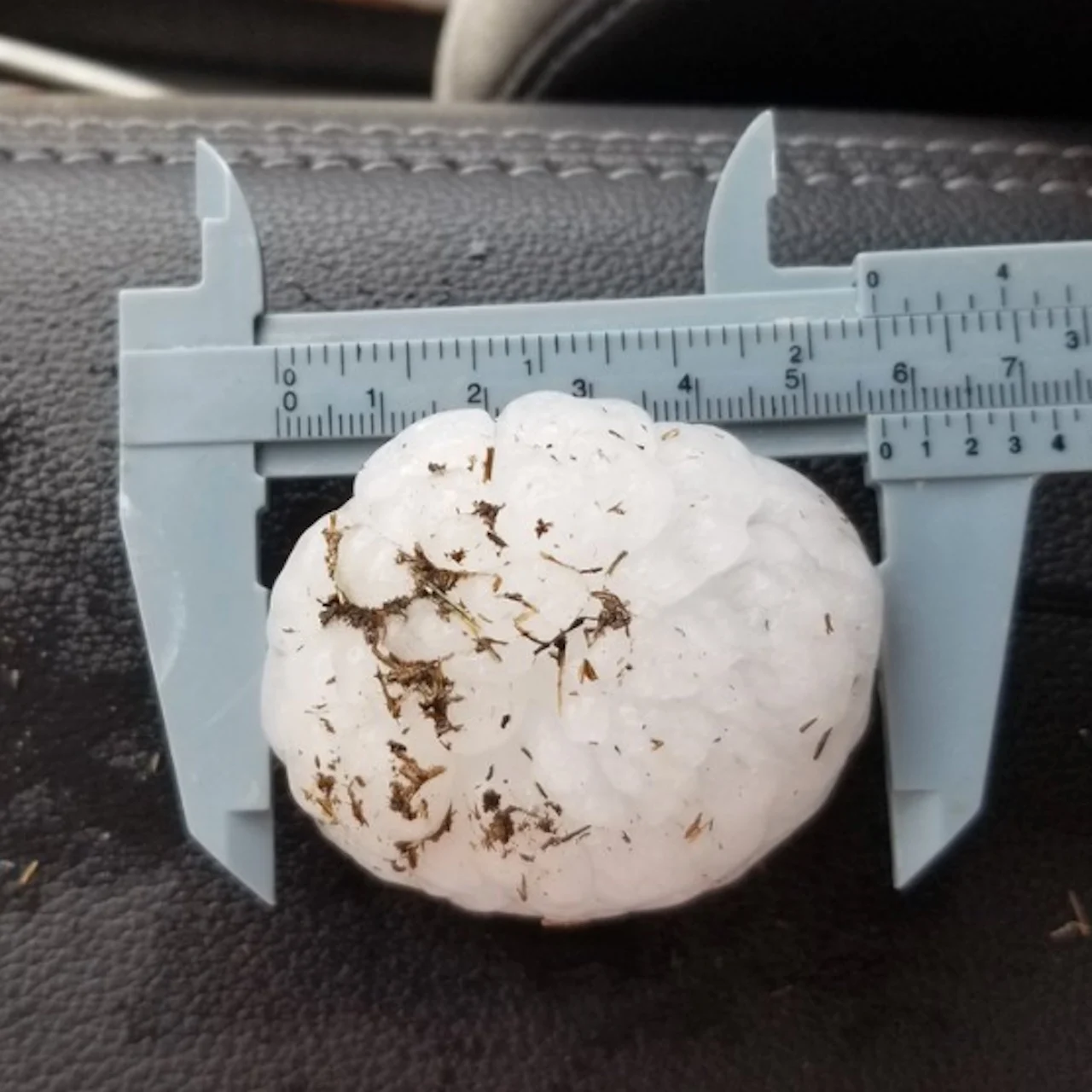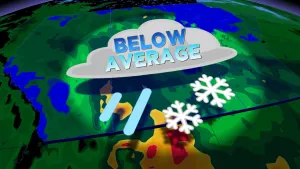
Insurers warn Albertans to prepare for this year's hail season
After a record-breaking 2020, insurers are warning people in Alberta to prepare for the coming hail season.
Though most likely from June to September, the height of the thunderstorm season, hail can absolutely occur outside of that time frame, and the Insurance Bureau of Canada (IBC) is urging people to get ahead of potential severe weather by providing tips and pointers.
It's not for nothing that insurers are trying to get people in the right mindset this year. Alberta regularly punches above its weight in terms of severe weather and in 2020, three Alberta disasters accounted for 80 per cent of the year's top-five costliest severe weather events.
Topping that list, and far and away the most expensive in terms of insured losses that year, was a June 13th hailstorm that did around $1.3 billion in damage. It was the most expensive hailstorm in Canadian history, and the fourth most expensive weather disaster on record.
"Calgary's unique location means we are susceptible to many different hazards. Summer storms with hail can be particularly dangerous and destructive," Chief Susan Henry of the Calgary Emergency Management Agency said in a release from the IBC. "Last year we saw these impacts first hand, but there are things you can do now to be prepared. We encourage all Calgarians to sign up for weather alerts, learn about the hazards you are vulnerable to and take the necessary steps to prepare."
WATCH BELOW: WHAT'S BEHIND CANADA'S OWN 'HAIL ALLEY'
The IBC, which measures insured losses, notes that the actual cost of disasters is often much higher once taxpayer-funded repairs to infrastructure are factored in.
As Canadians see "accelerating" financial losses from climate change-influenced severe weather events, the IBC says Canada "still lacks a national climate adaptation strategy with measurable targets and the accompanying investments needed to protect Canadian homes and businesses from natural disasters," though it acknowledges some early collaborative efforts between insurers and governments.
In the meantime, the IBC has some tips on how to prepare for severe weather, below, along with some tips on how to deal with your insurer after a storm, which you can access here.
PREPARING FOR SEVERE WEATHER
Secure barbecues, and secure or store patio furniture indoors when severe weather is in the forecast.
Park your vehicle in a covered area.
Ensure proper grading around your home.
Have someone check your property if you are away.
Install a sump pump, and a sewer backup or backflow valve.
Consider resilient building materials when completing repairs.
BEFORE AND DURING A STORM
Stay away from windows, doors and skylights during a storm.
Do not drive through flooded intersections or large puddles.
Watch for flooded areas. Excessive hail combined with heavy rain can plug storm drains and create local flooding.
If driving, find a place to safely pull off roadways and protect yourself from shattered glass by facing away from all windows.
If you are caught outdoors with no immediately available shelter, crouch down, face away from the wind and protect your head and neck with your hands.










